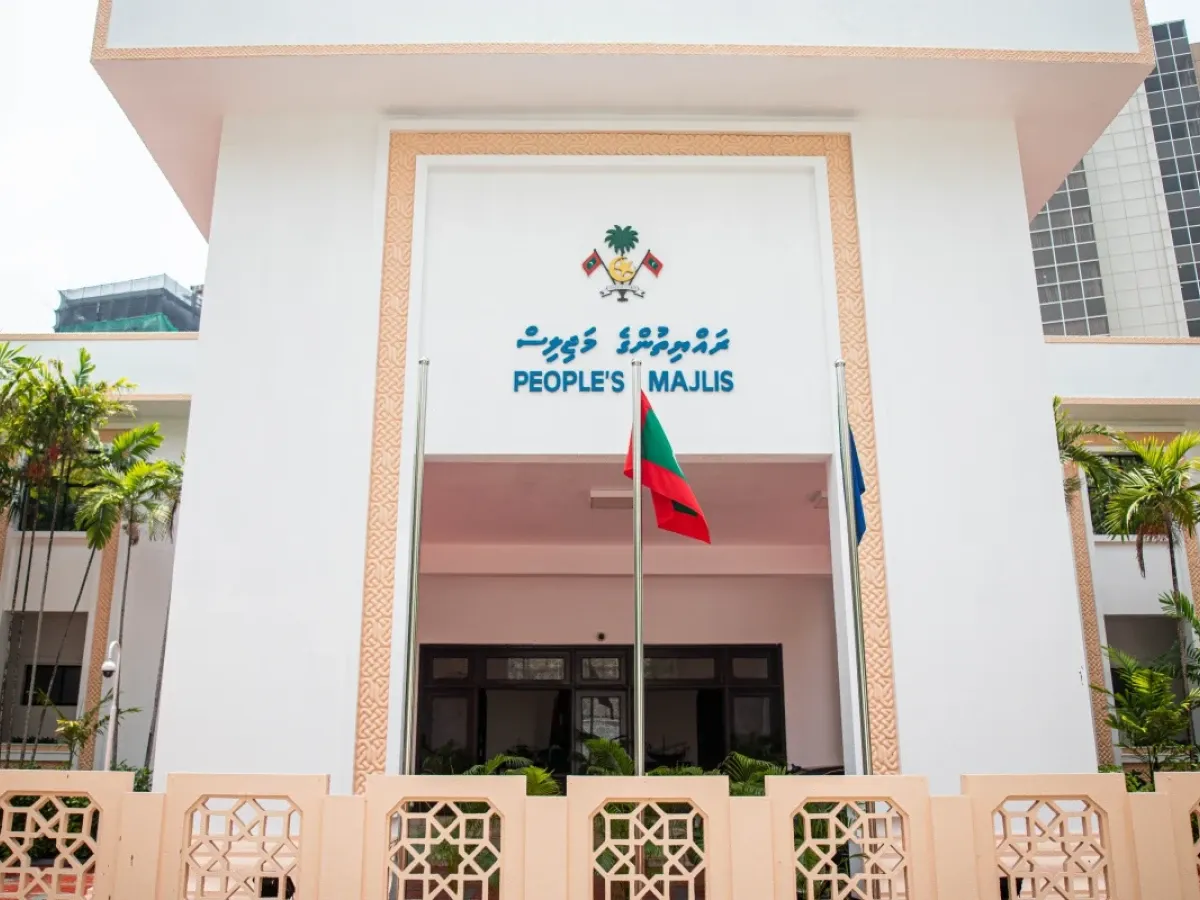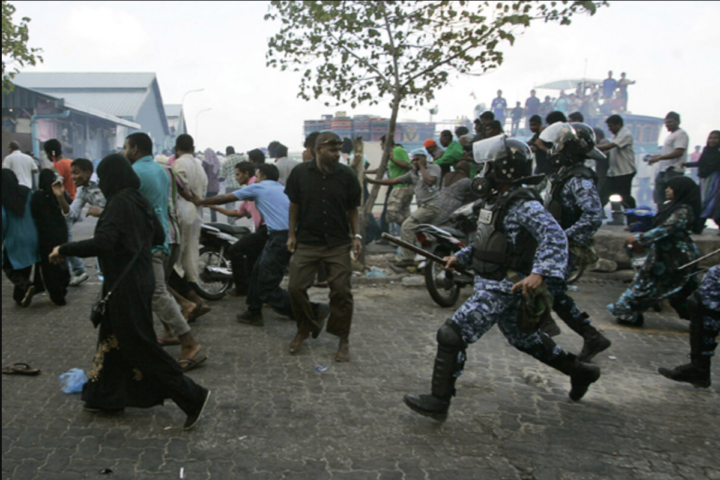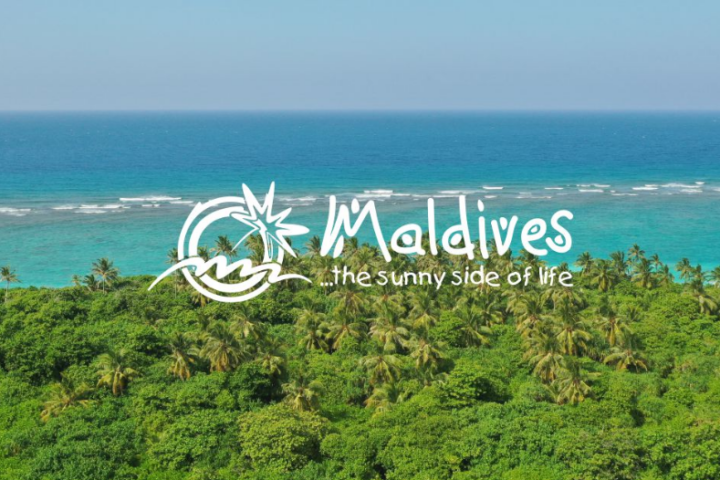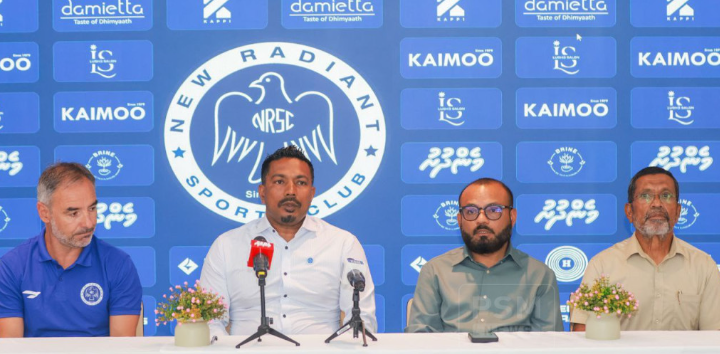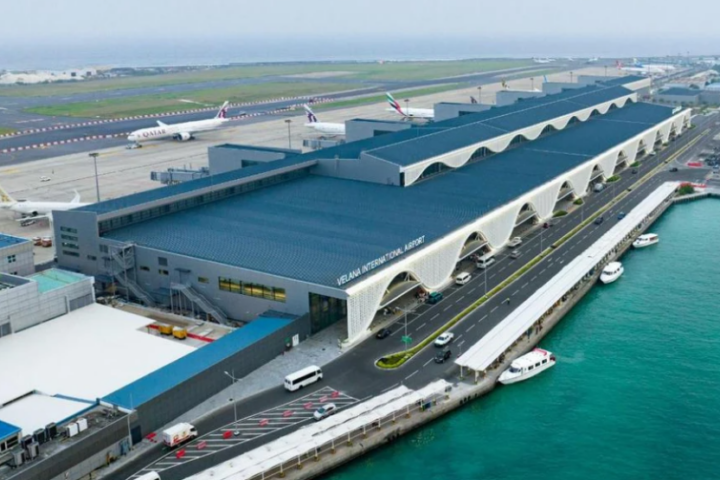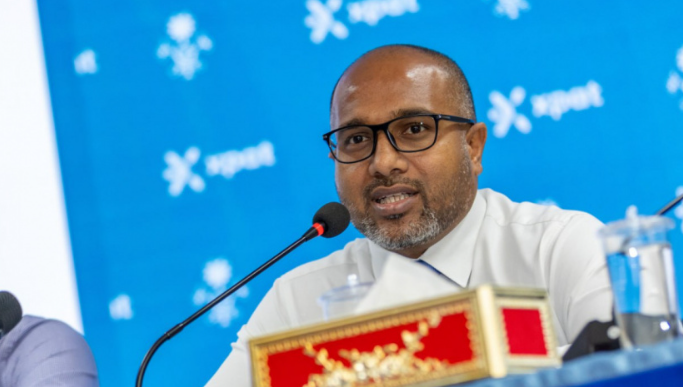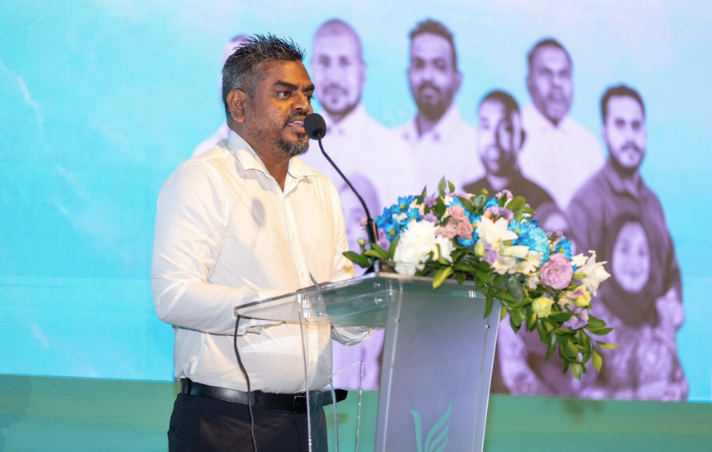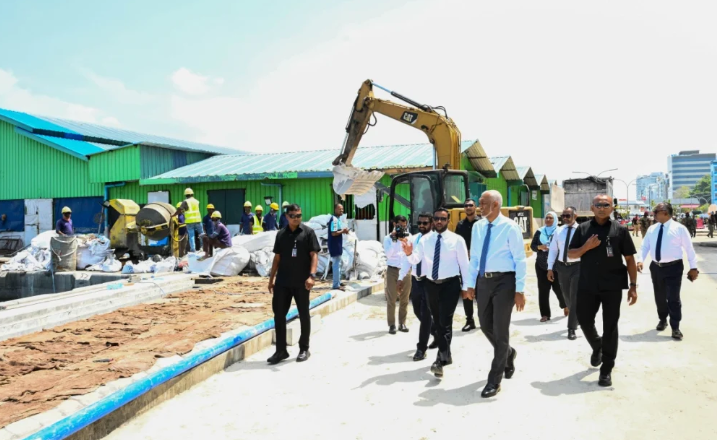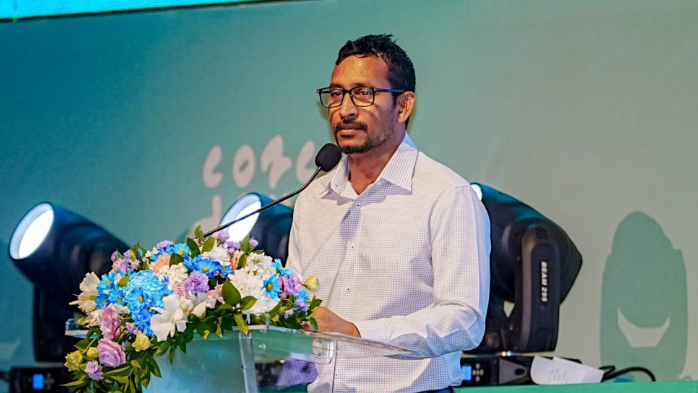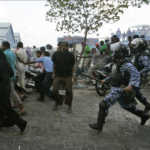MALÉ, Maldives — The Maldives marked Democracy Day with three incidents that underscored the mounting pressure on press freedom, even as journalists protested a contentious bill they say could throttle independent reporting.
The first unfolded inside Parliament. The Independent Institutions Committee, dominated by the ruling People’s National Congress (PNC), forced through the so-called media control bill behind closed doors after opposition members and journalists walked out in protest. A petition submitted by the Maldives Journalists Association (MJA) was sidelined. Ibrahim Shujau, a PNC lawmaker for Baarashu, claimed amendments addressed the concerns. Journalists countered that the changes only tightened restrictions. Committee members later reconvened to vote after more than 20 minutes spent in a locked chamber, while reporters cleared security but remained barred from entering.
At nearly the same moment, the state broadcasting regulator handed down an unprecedented punishment. The Broadcasting Commission of Maldives ordered Channel 13 off air for two hours over alleged violations during a live programme, and separately warned Rajje TV after an opposition politician made remarks about the president’s family. It was the second sanction against Channel 13 in a month. Critics said the decision added weight to fears that regulatory bodies are being used to silence dissent.
On the eve of Democracy Day, the government dismantled the media fenda outside the President’s Office, a designated space created only months ago for reporters. Officials said unauthorised people had been entering under the guise of journalists, disrupting security protocols. To many in the press, the move looked like another step in closing down avenues for scrutiny. The space, largely unused until protests erupted over the bill, had become a gathering point for rallies.
The backdrop was already tense. On International Democracy Day, journalists marched through Malé with opposition figures, warning that the legislation, which merges the Maldives Media Council and the Broadcasting Commission into a single authority under direct government control, could bring one of South Asia’s freest press environments to heel. Its provisions stretch the definition of “media” to include ordinary social media posts, raising the possibility of penalties against private citizens.
Attorney General Ahmed Usham has urged the president to soften parts of the bill. But the government appears intent on pushing it through, dismissing criticism as misinformation.
International watchdogs, from Reporters Without Borders to the Committee to Protect Journalists, have sounded alarms, calling the measure a threat to democratic rights. At home, the MJA has led rallies, petitions and forums, warning of the dangers to free expression.
Abdulla Shahid, president of the opposition Maldivian Democratic Party and a former foreign minister, called the bill a sign of authoritarian drift. “This Democracy Day reveals the destruction of hard-won rights and freedoms,” he said.
For many Maldivians, the events of one day crystallised a wider struggle: whether their democracy will deepen or retreat. The answer is still uncertain. What is certain is that journalists, once again on the front line, are refusing to be silenced.
On Democracy Day, Press Freedom in the Maldives Hangs in the Balance
